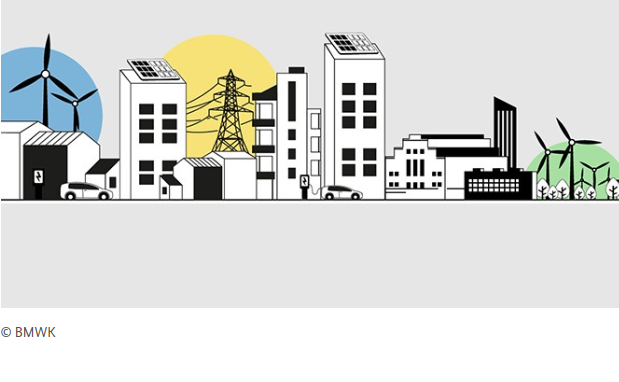
„Digitization of the energy transition“ makes a new start
7. Februar 2023„Digitization of the energy transition“ makes a new start
Berlin, February 7th, 2023
Germany is accelerating the rollout of smart meters to reach the 2030 “zero energy” deadline
The federal government has passed a bill that is expected to come into force in the next few months. This is intended to accelerate the introduction of intelligent electricity meters.
The Ministry of Economics and Climate Protection has set a deadline of 2030 for the energy industry to use smart meters across the board in order to have the digital infrastructure for an „almost zero energy supply“.
The new law is intended to “restart the digitization of the energy transition”. It will “take digitization and the smart meter rollout to a new level as a prerequisite for accelerating the energy transition,” it said. By 2025, all electricity providers (not just those with more than 100,000 consumers like now) will need to offer dynamic tariffs to customers to shift demand away from peak periods when renewable electricity is readily available and prices are lower.
A statement said: „Smart meters are part of the digital infrastructure and therefore an essential part of a near-zero-emissions energy system characterized by fluctuating demand and volatile generation. They also provide consumers with more accurate and meaningful information about their energy consumption. In order to quickly create legal certainty for the acceleration of the smart meter rollout, the law should come into force this spring.”
The ministry has decided to drop the country’s „three vendor rule,“ which mandates multiple vendors for each stage of development, citing „the supply of smart meter gateways on the market is now sufficient.“ It says: „In the future, the most innovative manufacturer will set the pace and it will no longer be necessary to wait for three manufacturers to reach the same level of technological development.“
It has further relaxed the rules to speed up the use of measuring devices. Certified devices can now be installed for consumers up to 100,000 kWh and generators up to 25 kW even if certain hardware functionalities are not available – on this basis they can later be imported into software. „Network operators, market participants and electricity customers … receive the device earlier with the possibility to add functionalities later,“ it said.
The ministry has ruled that the cost of metering (‚€20 a year‘ per device) will be ‚more fairly‘ shared – with network operators bearing most of the cost in return for most of the service. At the same time, data exchange is to be expanded and data protection improved. The new law also „bolsters the ability“ to install Meter Gateways at grid connection points – where they „are best…as a security measure for relevant energy-related applications“.
The law stipulates that the standardization efforts of the Federal Office for Information Security (BSI) will focus on meter gateways – „to strengthen the role of gateways as a secure communication platform and to facilitate standardization“. There is also a focus on streamlining the secure delivery and storage of smart meter gateways (“secure supply chain”) – which is “currently making the rollout unnecessarily difficult,” it said.
Federal Economics Minister Robert Habeck said: „Today’s decision … is a key element in the transformation of our energy supply. We’re phasing out fossil fuels, we’re in the middle of it, but all the different elements need to work together intelligently. We must push ahead with the expansion of renewable energies and also push ahead with the adjustment and improvement of the overall system. That is what today’s decision is about.
“The expansion of renewable energies [and the increasing] use of electric vehicles and heat pumps requires intelligent electricity networking from us. The energy supply of the future will be much more flexible and therefore more complex, which is why we need smart meters and the digitization of the energy transition. The bill we tabled today provides a clear roadmap for adoption, making it more systematic, faster to implement and less bureaucratic.”


